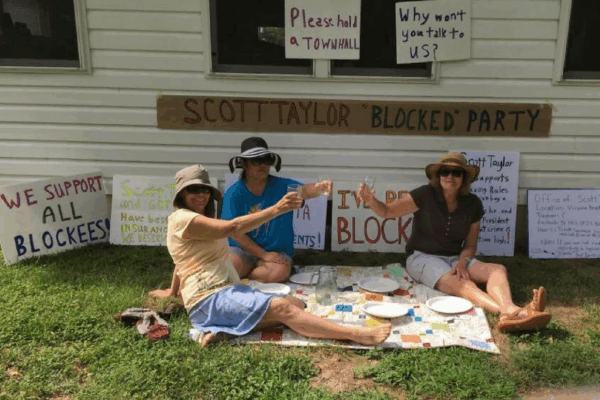Politicians, just like the rest of us, use social media.
And, just like everyone else, politicians use social media to post about their lives and stay in touch with friends and family. Unlike most people, however, politicians also conduct official, public business on social media. They post about policy positions, public events or anything else of interest to their constituents. In turn, the public can comment on these posts, sharing their thoughts with both the government official and anyone else viewing the page. In many ways, this is the 21st century town square.
Because constituents sometimes say things politicians don’t want to hear, some elected officials have wrongly attempted to filter what is said on official social media platforms they maintain. First, some elected officials create their own social media profiles to conduct government business in an attempt to avoid the laws governing the use of publicly maintained social media accounts. Then, some have deleted comments they don’t like and even blocked users from whom they would rather not hear.
These politicians argue that their official social media pages are personal accounts, and they may block whomever they choose for any reason whatsoever or no reason at all. But for our society to remain free, the First Amendment must protect speech in the places it actually occurs today, not just where it occurred in 1791. Take the case of Loudoun County Board of Supervisors Chair Phyllis Randall. Separate from her personal and campaign Facebook accounts, Randall maintains a Facebook page for government business that she created the day before taking office. In Randall’s own words, the page’s purpose is to “hear from ANY Loudoun County citizen on ANY issues, request, criticism, compliment, or just your thoughts.”
Despite her statement, Randall blocked a critic from posting on this official page because of his opinions. The critic, Brian Davison, posted a question about Randall’s campaign pledge to have all government officials make an ethics pledge. Because Randall did not “appreciate” the “set-up question,” she deleted the comment and blocked Davison from making further posts.
Davison has sued in federal court to hold Randall to her word and assert his fundamental right to speak in a public forum. At trial, a federal judge found that Davison’s rights had been violated, ruling against Randall. Her argument was both simple and flawed. She argued that her Facebook account was personal, and thus she could do with it as she pleased.
While the First Amendment does not stop private citizens from blocking people they do not like on social media, Judge James Cacheris of the Eastern District of Virginia correctly ruled that a page created by an elected official, administered by the publicly paid staff of that official, and used to communicate official business with constituents, is not a personal account. Rather, Randall’s official Facebook page is a public forum. Therefore, under long-standing First Amendment principals, Davison has a right to post his criticism in that space.
The ACLU of Virginia has filed an amicus brief in the case, urging the Court of Appeals to affirm Judge Cacheris’s decision. Government officials, from the President of the United States to a county supervisor, have the same First Amendment rights as anyone else. This includes the right to block whomever they choose from their private Facebook pages free from government interference. But when politicians use social media to conduct public business, the First Amendment demands that critics not be silenced.

